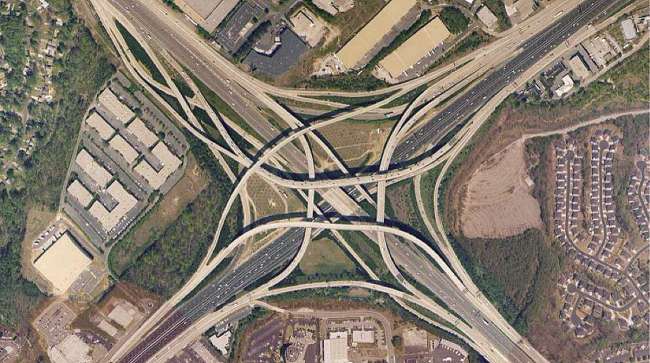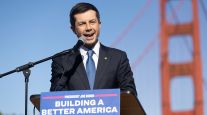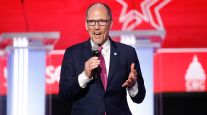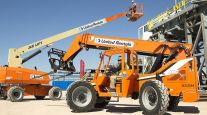Senior Reporter
Report: Local Leaders Highlight Infrastructure in Annual Addresses

[Stay on top of transportation news: Get TTNews in your inbox.]
Infrastructure was a major policy theme for many mayors this year, who in their annual addresses to residents pressed for additional funding for big-ticket projects and highlighted improvements to commercial corridors, pedestrian and transit access, and water systems.
The “State of the Cities” annual report by the National League of Cities determined that infrastructure policy ranked as the second most pressing issue for mayors. An analysis of 153 State of the City speeches between January and April found that 57% of such speeches focused significantly on concerns related to infrastructure funding, as well as projects having to do with access roads, local streets and traffic signs. Transit and waste collection also were prominently mentioned.
StateOfTheCities 2019 by on Scribd
Economic development was the main issue for mayors in their annual addresses, according to the analysis. Also ranking high on the list were themes related to safety, education, health services, climate change and housing.

Freeman-Wilson
“While Washington talks, mayors take action. As the government that’s closest to the people, mayors work every day to reach across the aisle, bring people together, and find solutions that help our residents,” said Mayor Karen Freeman-Wilson of Gary, Ind., president of the group.
“Whether you’re talking about infrastructure or climate change, mayors know that local action is critical to making our cities, towns and villages more sustainable and economically competitive. The ‘State of the Cities’ report shows that mayors are addressing these issues head-on and are planning for the long-term health and well-being of their communities,” she added.
In Clarksville, Tenn., newly elected Mayor Joe Pitts is pursuing a project aimed at widening a major intersection to tackle severe traffic congestion.
Also, in Kettering, Ohio, Mayor Don Patterson emphasized a project designed to rehabilitate a county road. As he put it: “The project will add a lane of traffic in each direction in order to ease daily vehicle flow.”
The National League of Cities is among the groups continuing to urge federal policymakers to boost funding for construction and maintenance projects for nonfederal agencies. During the national advocacy forum Infrastructure Week in May, myriad stakeholders, including mayors and governors, sought to raise the profile of deficient bridges nationwide found to be in need of upgrades, and concerns with freight and transit connectivity. Traffic congestion has the potential of hindering regional economies, studies have found.
According to the American Transportation Research Institute, congestion resulted in an annual cost to the trucking industry of $74.5 billion in 2016.
ATRI Bottlenecks Brochure 2019 by on Scribd
Congestion’s impact was found to be in an estimated 1.2 billion lost hours of productivity, ATRI determined. The group’s annual assessment of freight bottlenecks in 2019 ranked the George Washington Bridge on the New Jersey side as the most congested. That was followed by the five-level stack interchange in Atlanta referred to as “Spaghetti Junction,” which is where interstates 285 and 85 North intersect. Atlanta also took the third spot with I-75 at I-285 North.
“While our list focuses on truck-based congestion, in every one of these locations it is not that just trucks are moving so slowly, cars are impacted by this congestion as well,” ATRI President Rebecca Brewster told Transport Topics when the report was released.
Earlier this year, President Donald Trump and congressional Democrats announced an agreement to proceed with a $2 trillion infrastructure proposal that would have addressed stakeholders’ funding concerns. Their negotiations collapsed May 22, however, after Trump criticized the Democratic-led House’s investigations of his 2016 presidential campaign. In 2018, Trump promoted a 10-year, $1.5 trillion infrastructure plan that would have relied mainly on nonfederal funds. Senate Republican leaders have not unveiled an infrastructure plan during the Trump administration.




